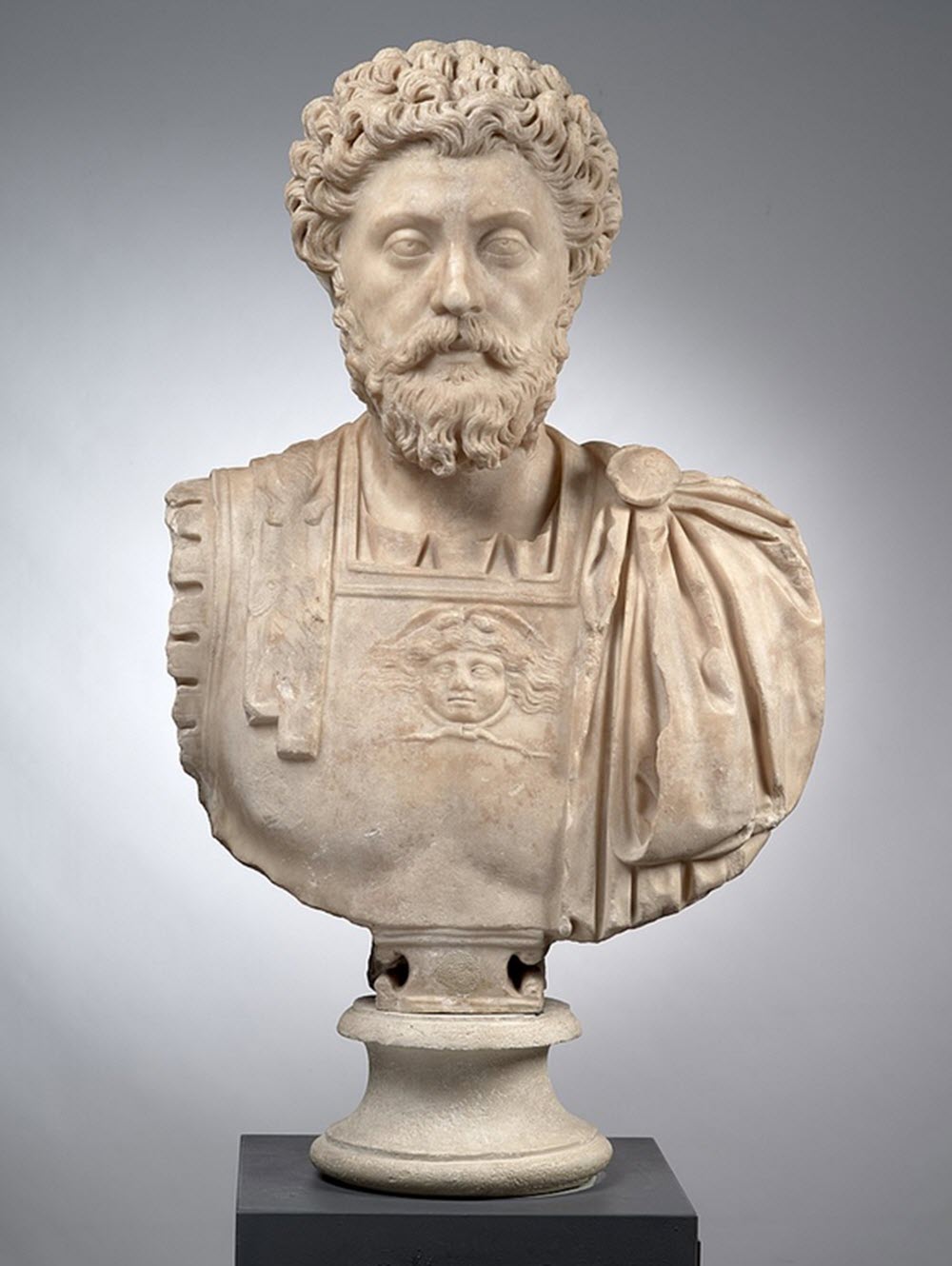Marcus Aurelius, renowned as one of the ‘Five Good Emperors,’ was not just a Roman Emperor but a pioneering figure in philosophy. His reflections, especially in Stoicism, have transcended through ages. In this article, we explore the life, reign, and philosophical contributions of Marcus Aurelius.

Early Life and Ascension to the Throne
Birth and Education
Born on April 26, 121 AD, in Rome, Marcus Aurelius belonged to a prominent family. His intellectual pursuits began early, under eminent tutors, where he developed a keen interest in philosophy and law.
Adoption by Antoninus Pius
Emperor Hadrian, recognizing Marcus’ potential, arranged for his adoption by Antoninus Pius, who was to be his successor. This event paved the way for Marcus Aurelius’ eventual ascent to the throne.
Becoming the Emperor
In 161 AD, upon Antoninus Pius’ demise, Marcus Aurelius assumed the title of Emperor. Contrary to conventions, he insisted on sharing power with Lucius Verus, his adoptive brother.
Reign and Military Campaigns
Philosophical King
As an Emperor, Marcus was just, intellectual, and sought counsel. His Stoic beliefs influenced his governance, emphasizing duty and service.
The Parthian War
One of the significant military events during his reign was the Parthian War (161-166 AD). Lucius Verus was assigned to the campaign, and despite his nominal leadership, the victory was credited to both emperors.
The Marcomannic Wars
Post the Parthian War, Marcus Aurelius faced the Marcomannic Wars (166–180 AD) against Germanic tribes. These wars were critical in defining the boundaries and military strength of the Roman Empire.
Philosophical Contributions
Stoicism and the ‘Meditations’
Marcus Aurelius is best known for his Stoic philosophy. His work, ‘Meditations,’ written during his military campaigns, comprises personal reflections and exercises in Stoic philosophy. It remains one of the greatest works of philosophical literature.
Tenets of his Philosophy
‘Meditations’ reflects Marcus Aurelius’ innermost thoughts and covers key Stoic beliefs such as the notion of a universal reason (‘logos’), the nature of virtue, and the importance of accepting one’s fate.
Legacy in Philosophy
His rational and principled approach has had a lasting impact, making Stoicism relevant even today. Many modern thinkers, writers, and leaders have cited Marcus Aurelius’ Stoic principles as guiding forces.
Final Years and Succession
Declining Health and Death
Marcus Aurelius’ health declined during the latter part of his reign, which was marked by military conflicts and plagues. He passed away in 180 AD, in Vindobona, present-day Vienna.
Succession by Commodus
His son, Commodus, succeeded him. Commodus was considered erratic and cruel unlike his father, which marked a stark contrast to Marcus Aurelius’ wise and philosophical rule.
